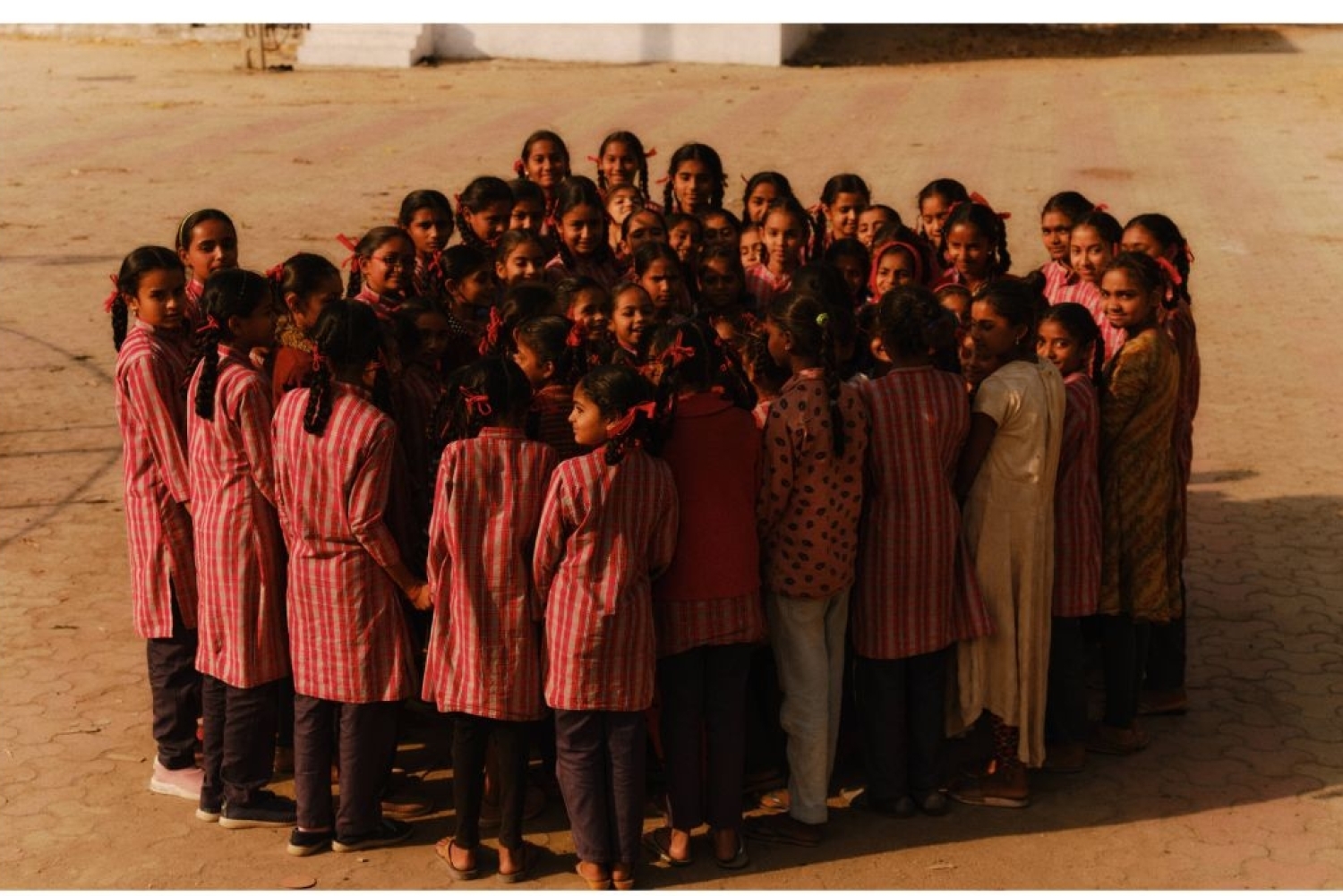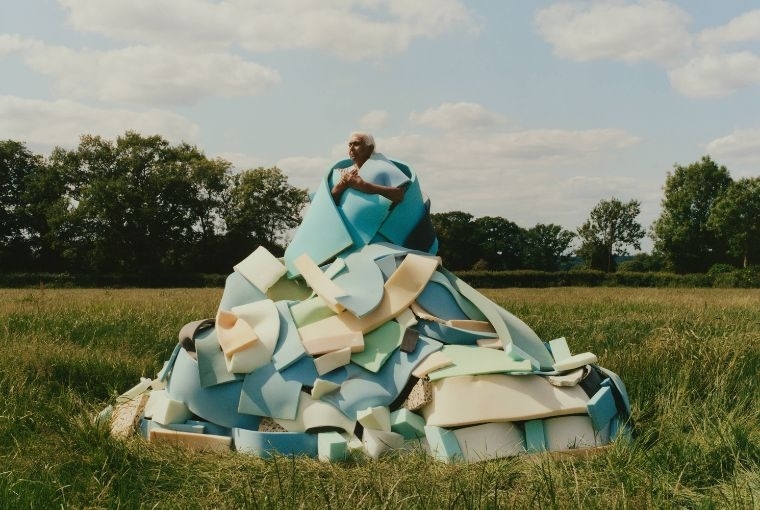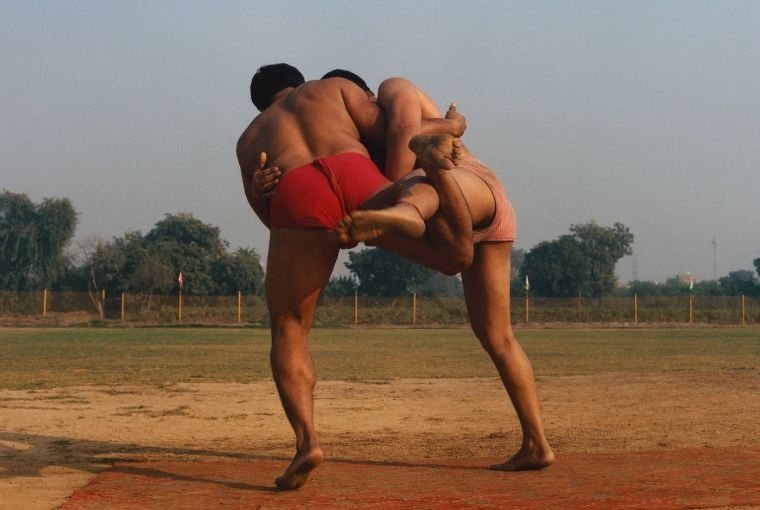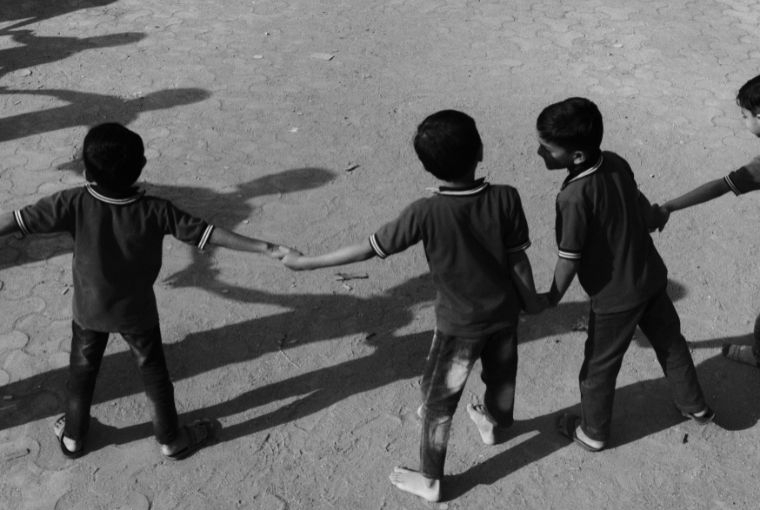

Vivek Vadoliya is a London-based photographer and director whose practice stems from his experiences of being a second-generation British Indian. He has grown up navigating two worlds, and that in-between space has become the foundation of his practice. His work sparks conversations about belonging, about culture, about how people hold on to memory and identity in shifting circumstances.
Much of Vivek’s work gravitates toward themes of family, community, and home—not home as a fixed physical place, but as something carried internally, shaped by relationships and moments of care. His first solo exhibition in London emerged from an intensely personal starting point: navigating illness and the responsibility of caregiving within his family. It is a body of work that connects portraiture, documentary, and even archival material to explore how family structures and diasporic identities evolve across borders.

We asked Vivek some questions around his identity, the work that stems from it, and what lies next for him.
There are many reasons why people use photography as a medium; to make sense of the world around them, to showcase the variety of people among other things. Do you remember why you picked up the camera in the first place?
I realised that the camera allowed me to navigate the world to ask questions, to meet people, to understand myself. It became a tool for me to have conversations.
What are the themes do you usually gravitate towards?
Recently my main themes have been about family, community, and cultural identity. I’ve been using my documentary practice to create dialogue between myself and my culture. The recent show is about exploring themes of home, particularly how it is more of an internal place vs a physical one.
You’ve been able to reflect the warmth and vibrancy of India through your pictures; what is it about India and its streets that inspires you?
In India there is a story on every corner, especially when you just go out walking on the streets. I grew up in the UK, so I have a different relationship to the country. When I walk out, I love the possibility of what could happen on the streets, the interactions. The streets have a vibrant chaos and my work is a response to that.

How do you make your subject comfortable to let you document them in their authentic state considering you also shot your family for your first solo show in London? How do you build trust with them?
It’s always a collaboration. Over the years, my family have seen the work I’ve made so it felt natural for me to ask them to be my subject. Although it was really tricky to photograph them, it was useful to overcome the challenge.
What does creating art mean to you now? Since the need to document came later in life to you…
Creating art has become a way to express my internal self. I love the way it can help process and navigate big questions.
What was the starting point for first solo show that recently concluded in London?
The process of this work started during lockdown when my mother became sick. I was navigating what my place was during this period of care. The work naturally came to a place of exploring home, family structure and identity.

How did you explore themes of family, illness and care?
The work has photographs of my family, uncles, aunties, grand children. There is a combination of constructed portraiture and more responsive documentary work I made during trips between India and my family home in the UK. There is some self portraiture also as well as some archive work which I made during a residency in Mexico.
Has your dual identity influenced your work in anyway?
I believe it’s helped me to navigate the world, it’s helped me understand eastern and western points of view. I exist in the world between, and that has become a source of power for me. I love being able to see the world in that nuanced way.
Do you need to feel in order to create?
I think it’s the only authentic way to create, otherwise there is no depth in the work.
What are you working on next?
I’m working on a few personal projects in the UK and continuing to photograph my family. The exhibition is an exciting chapter in a lifelong body of work.
Words Hansika Lohani
Date 21-8-2025